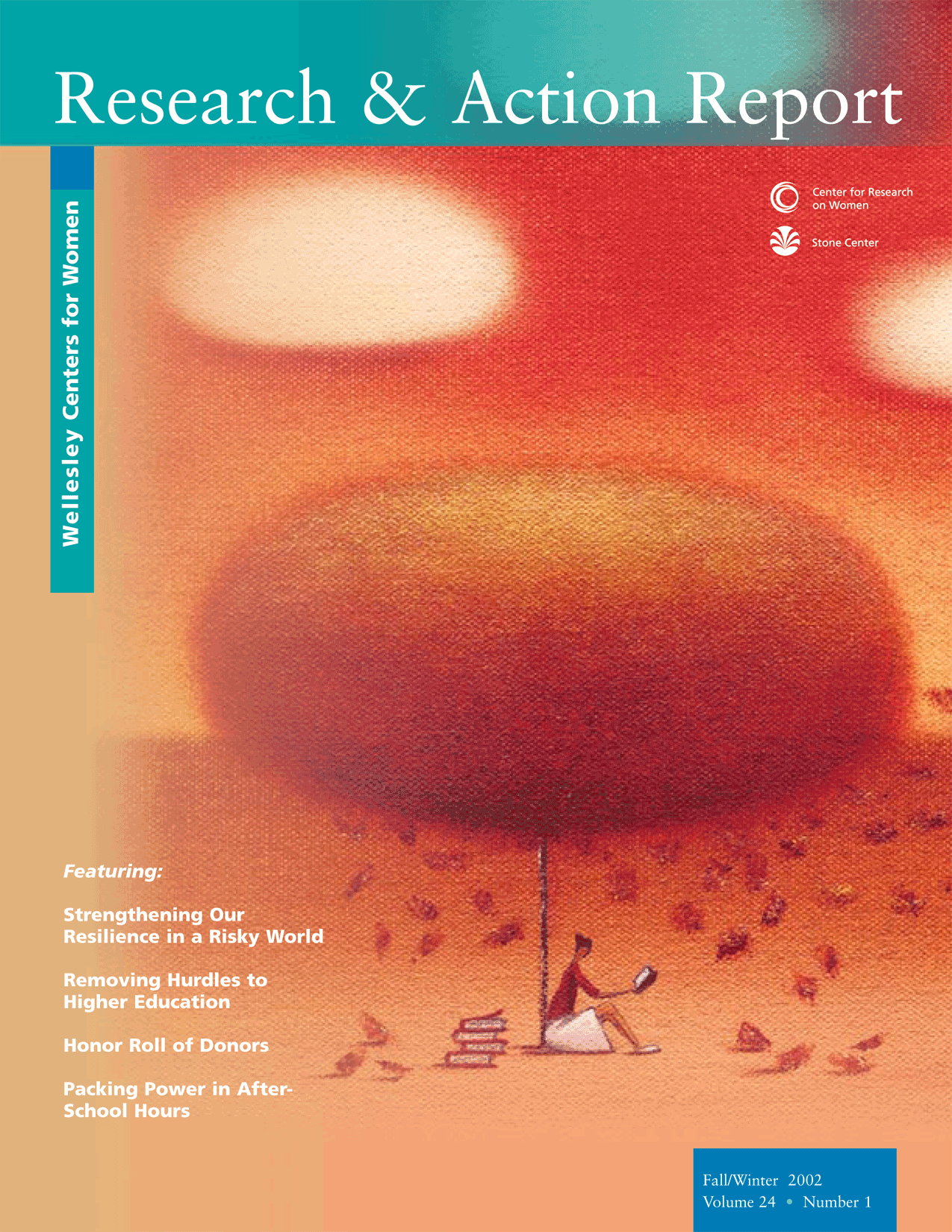Little attention was being paid to the development of after-school opportunities Twenty-five years ago when Michelle (Mickey) Seligson and Jim Levine met to create the School-Age Child Care Project. At that time, Jim was assistant director for the Human Relations-Youth Resources Commission in Brookline, Massachusetts, and Mickey was helping several parent groups in Brookline set up afterschool day care programs. When mention of Mickey's projects in two national magazines drew over 1,500 letters requesting more information, it became clear that there was a great need for such projects across the country.
Over the last year we have faced monumental adversity - a devastating national tragedy, ongoing concerns about terrorism, unpredictable international conflict, a serious downturn in the economy, as well as many other hardships related to these traumatic circumstances. These adversities are testing the courage and fortitude of individuals, families, and communities throughout our country and around the world. In response, many researchers and clinicians have renewed or expanded their efforts to understand how people overcome trauma, severe hardships, and adverse conditions - that is, they have been studying resilience.
On September 12, 2001, as the whole country was trying to make sense of the events of the previous day, parents and teachers had the even tougher task of helping young children deal with trauma. For participants of Open Circle, a social competency program of the Wellesley Centers for Women, the task was slightly easier.
This September, as thousands of men and women headed back to college in pursuit of higher education, many welfare recipients were deprived of this opportunity. Current restrictive welfare policies, with their stringent time limits and work requirements, make access to post-secondary education extremely difficult. Both the passage of the Personal Responsibility and Work Opportunity Reconciliation Act (PRWORA) of 1996 and the institution of Temporary Assistance to Needy Families (TANF) emphasize moving welfare recipients into the workforce as quickly as possible, making it difficult for them to pursue higher education. According to Haskins and Blank, writing in Poverty Research News (Joint Center for Poverty Research, 2001), the work-first approach has raised the employment rate without improving job quality, pushing low-income women in particular into low-wage, unstable jobs.
The Women's Review of Books is published monthly at the Center for Research on Women. It is the only U.S. publication to focus exclusively on books by and about women. Linda Gardiner founded The Women's Review of Books in 1983 and has been its editor ever since.

In this issue:
 | Wellesley Centers for Women 781.283.2500 |
Copyright © 2025 Wellesley Centers for Women, Wellesley College | Privacy Policy
National SEED Project | National Institute on Out-of-School Time
